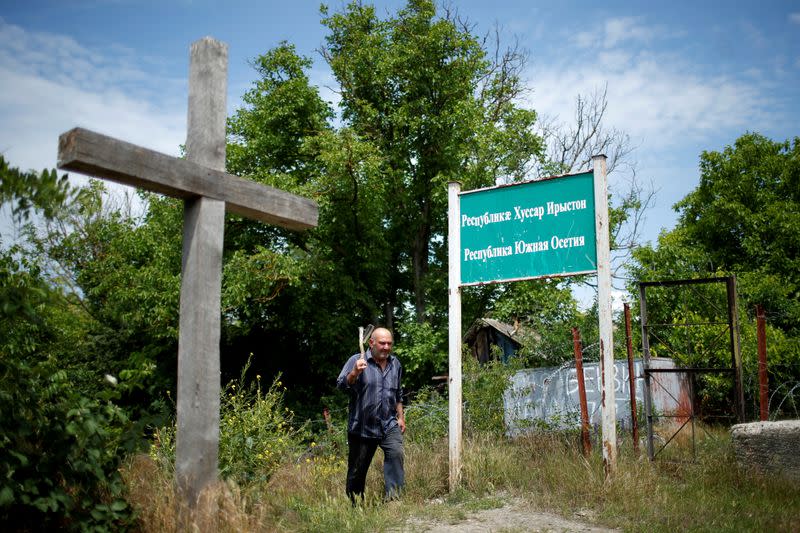Breakaway Georgian region is discussing becoming part of Russia, says local official

MOSCOW (Reuters) - South Ossetia, a region that broke away from Georgia and calls itself an independent state, has discussed becoming part of Russia with Moscow officials, Russian news agency RIA cited the head of South Ossetia's parliament as saying on Sunday.
Russia recognised South Ossetia and another breakaway region, Abkhazia, as independent states in 2008 after Russian troops repelled a Georgian attempt to retake South Ossetia in a five-day war in 2008. Venezuela, Nicaragua, Nauru, and Syria recognised them as independent too.
But the West accused Russia of effectively annexing Abkhazia and South Ossetia, one fifth of Georgia's territory, and Tbilisi wants the two regions back.
"We are discussing all these issues in close coordination with Russia, taking into account our bilateral relations and treaties," RIA quoted Alan Alborov, the chairman of South Ossetia's parliament, as saying in answer to a question about the possibility of holding a referendum on becoming part of Russia.
"When we come to this idea together with the Russian Federation (about joining the Russian Federation), we will do it," RIA quoted Alborov as saying
The Russian-backed leader of South Ossetia, Alan Gagloev, last year expressed hope that the region could be formally incorporated into Russia, RIA said.
South Ossetia broke away from Georgian rule in a war in 1991-92 in which several thousand people died, and maintains close ties with the neighbouring Russian region of North Ossetia.
The majority of South Ossetians are ethnically distinct from Georgians, and speak their own language, related to Farsi.
Almost all the population have accepted Russian passports. They use the Russian rouble as their currency and the economy is dependent on Russia.
(Reporting by Reuters; Writing by Guy Faulconbridge; Editing by Andrew Osborn)

